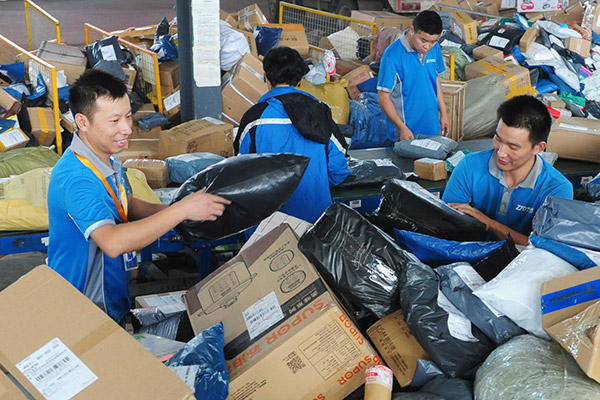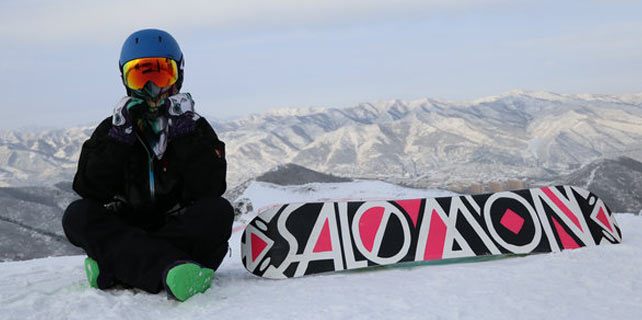Debate shrouds courier firms' 11/11 price rise
 |
|
Employees of ZTO sort parcels in Fuyang, Anhui province. [Photo/for China Daily] |
China's courier firms defended their recent move to raise prices of their delivery services for the upcoming Singles Day online shopping festival on Nov 11, which is also known as 11/11.
They said they were "forced" into the move to ease the pressure of the inevitable higher 11/11-related operational costs like transportation, human resources and raw materials.
Earlier this month, ZTO Express announced, without specific details, a price-rise, and said business volume in five to 10 days around 11/11 was expected to increase three to five times.
ZTO also said hiring a temporary worker in the past used to cost only about 2,000 yuan ($301). Now, however, it needs to pay 5,000 yuan to 6,000 yuan to short-term hires.
One of its deliverymen in Beijing said a 1-kg parcel delivery now costs 15 yuan, up from 10 yuan, with heavier loads entailing an additional charge of 8 yuan/kg, up from 5 yuan/kg.
Besides, the price of corrugated paper, a material used in deliveries, surged to 4,748.30 yuan per ton in September, compared with about 2,800 yuan per ton in April, data from the National Bureau of Statistics showed.
However, industry insiders said that most of the logistics supplies are bought by franchisees, not courier firms themselves.
Stated differently, courier firms' main raw material tends to be paper receipts, whose usage rate is only about 10 percent, now that digital receipts are used widely.
Industry insiders said some courier firms may be seeking to charge their franchisees more for courier receipts and delivery services, which could be passed on to consumers eventually.
China Express Association data show this 11/11 could see more than 1 billion packages. So, higher delivery charges could help relieve the additional pressure on regional franchisees' capacity.
Given the 11/11 craze, courier firms appear to be confident that a price rise now would not entail the risk of losing clients, insiders said.
But, besides ZTO, only Yunda Express announced a prices hike this month. Other express delivery players, such as YTO, STO and SF, said they do not have any price-hike plans.
Fang Xi, a researcher with the Research Center of the State Post Bureau, said it is natural for ZTO and Yunda to raise prices before Nov 11 to control the amount of deliveries.
Price-rise does not necessarily mean they are seeking to make unfair profits by exploiting a situation opportunistically. Rather, price-rise helps prevent over-stocking at warehouses, he said.
Fang further said international courier firms have to factor in oil prices and taxes before fixing their service price, while their Chinese counterparts are not affected by them. "That's why, the two companies (ZTO and Yunda) needed to find better rationale for raising prices."
Delivery charges at the enduser level are typically shaped by market forces, and cannot be raised by one company, said Wang Yong, senior director of operations at YTO Express.
Industry insiders said a better way would be to raise prices gradually over the long run while maintaining short-term stability.
Yang Daqing, a researcher with the China Society of Logistics, said price-hikes won't become a trend in the domestic courier market during 11/11.
Some companies hike prices to signal their entry into the top-end segment of the market and to steer clear of certain clients, so as to avoid accepting too many orders during the peak period, Yang said.
















